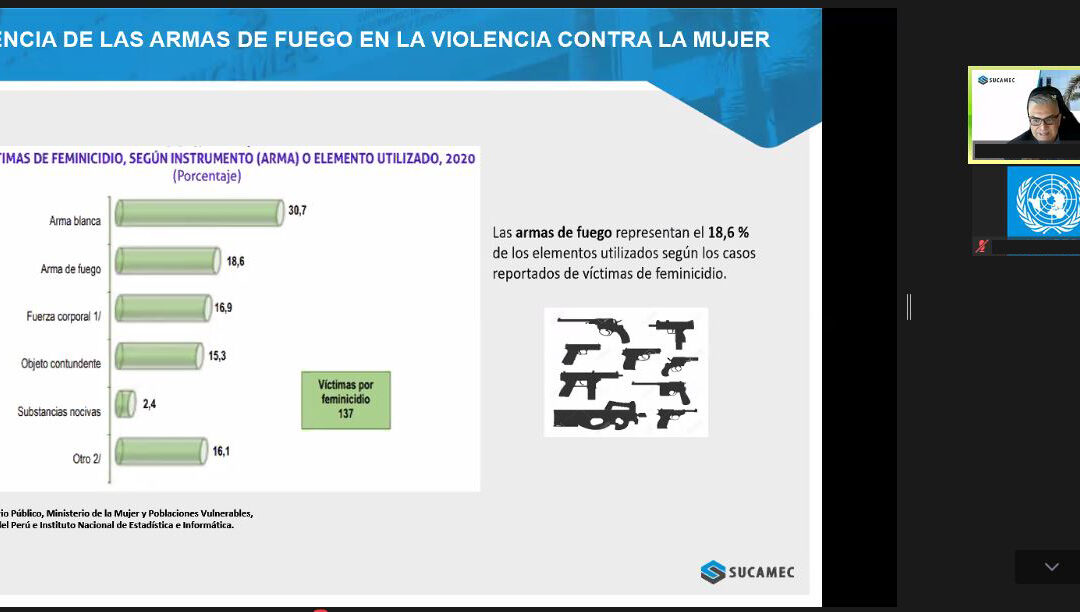On Tuesday 1 March 2022, the United Nations Regional Centre for Peace, Disarmament and Development in Latin America and the Caribbean (UNLIREC), in collaboration with the Directorate of Security and Defence of the Ministry of Foreign Affairs of Peru, held the webinar “Measures to prevent armed violence against women”.
There were 523 participants (62% women) from different public agencies with competencies in the subject matter: Ministry of Women and Vulnerable Populations, Ministry of the Interior, National Superintendence for the Control of Security Services, Arms, Ammunition and Explosives for Civilian Use (SUCAMEC), National Civil Police, Ministry of Defence, Public Prosecutor’s Office, among others.
The seminar began with a contextualization of the convergence of the Arms Control agenda with the Women, Peace and Security agenda – promoted by UN Security Council Resolution 1325 – and the importance of analysing the impacts of armed violence from a gender perspective in order to understand the effects on men and women. At this point, emphasis was placed on the incidence of firearms not only in femicides, but also on the different types of violence against women, whether physical, sexual and/or psychological.

It was emphasized that the presence of a firearm in a context of gender violence should be considered a risk factor, not only because of its lethality, but also because of its use to threaten and subdue the victims, increasing their vulnerability.
UNLIREC also presented the main findings of the Normative Study on Peru, which addresses the necessary linkage between gender-based violence regulations and small arms regulation and control standards. Good practices from other countries in the region and some recommendations for consideration at the national level were also shared.

The seminar included a presentation by an official from SUCAMEC, who provided a national perspective on the subject. Official statistics on firearms licenses by sex, the conditions for obtaining or renewing a firearms license, including the absence of family violence sentences, and SUCAMEC’s contribution to the enforcement of Law 30364 “Law to prevent, punish and eradicate violence against women and members of the family group” were shared. This, through the denial of gun permits of persons under protection measures issued by the justice system, as well as the denial of gun permits of aggressors, included in the Single Registry of Victims and Aggressors (RUVA) under the Public Prosecutor’s Office.
The seminar also joined the efforts of the “Valentine’s Day Gun Free” campaign led by the International Action Network on Small Arms (IANSA). The campaign was carried out from February 14 to March 8. Under the slogan “Guns do not belong in relationships”, the campaign seeks to raise awareness of the risks of having a gun in the home, violence committed by intimate partners, and the need to promote more effective gun control laws to prevent violence against women, in this case, domestic or intra-family violence.
This webinar was made possible thanks to the support of the European Union through the global project: Support for gender mainstreaming in policies, programs and actions in the fight against trafficking and misuse of small arms, in line with the Women, Peace and Security agenda.

